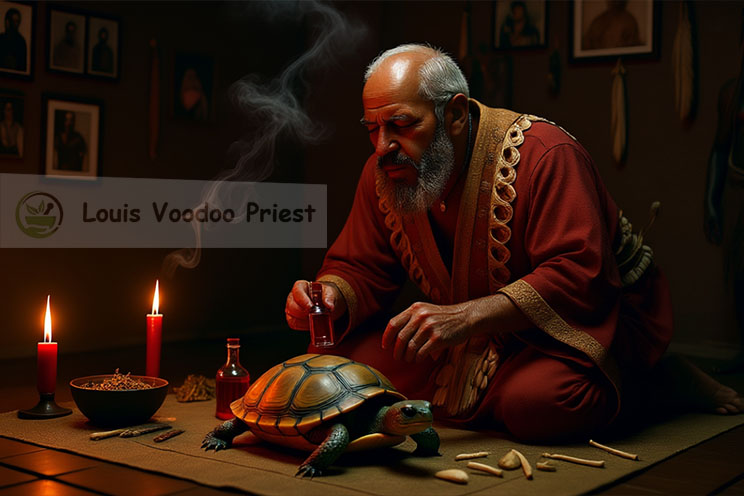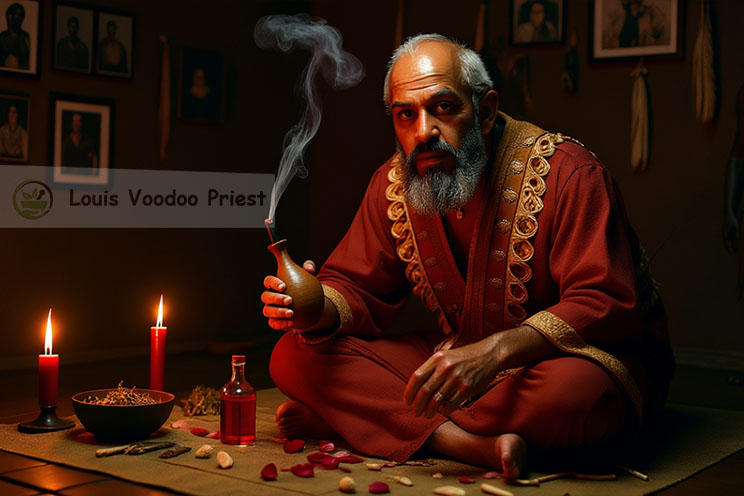Blog Post
What is the Real Difference Between Voodoo and Hoodoo? A Guide from a New Orleans Priest
 Think of Voodoo as a complete faith with its own churches, priests, and gods.
Think of Voodoo as a complete faith with its own churches, priests, and gods.
In my practice as a New Orleans Voodoo Priest, one of the most common questions I am asked is, "What is the difference between Voodoo and Hoodoo?" These two terms are often used interchangeably in popular culture, but they represent distinct spiritual paths. Understanding the difference is the first step toward appreciating the depth and beauty of these traditions.
For anyone seeking authentic spiritual guidance, knowing this distinction is crucial. This guide will clear up the confusion and provide clarity from within the tradition.
Hoodoo: The Folk Magic of the American South
Let’s begin with Hoodoo, which is not a religion but a system of folk magic and spiritual rootwork. Its foundations are primarily in Central and West African spiritual practices, which were brought to America by enslaved people.
Not a Religion
Not a Religion: Hoodoo has no centralized structure, hierarchy, or standard set of doctrines. It is a practical, hands-on tradition focused on outcomes.
The Practice of "Rootwork": Practitioners, often called rootworkers, use natural items—herbs, roots, minerals, animal parts—and personal items (like hair or nails) to create charms, potions, and spells known as "Gris-Gris" or "Mojo Bags."
- The Best Ceiling Colours. Christian Influences: Because it developed largely under slavery and Jim Crow, Hoodoo often incorporates elements of Protestant Christianity, especially the use of the Bible, Psalms, and figures like Moses, who was seen as a powerful conjurer.
- Return to designers.Purpose: The work is highly practical. People turn to Hoodoo for protection spells, love rituals, luck drawing, justice work, and uncrossing to remove negative energy.
- Expert Team. In short: Think of Hoodoo as a spiritual toolkit, not a church.
 In short: Think of Hoodoo as a spiritual toolkit, not a church.
In short: Think of Hoodoo as a spiritual toolkit, not a church.
Voodoo (more accurately, Vodou) is a full-fledged, organized African diasporic religion. It is a complete way of life with a theology, a complex pantheon of spirits, and communal rituals.
It is a Religion: Vodou has a structured hierarchy with Priests (Houngan) and Priestesses (Mambo) who undergo extensive training and initiation.
Worship of the Loa: At the heart of Vodou is the veneration of the Loa (or Lwa), powerful spirits who act as intermediaries between humanity and the supreme creator, Bondye.
Communal Ceremonies: Practice is centered around communal gatherings, often in a Hounfò (temple), involving drumming, dancing, singing, and ritual possessions where the Loa interact with the community.
Lineage and Tradition: Its practices are tied to specific lineages from West Africa (mainly Benin and Togo) and were syncretized with Catholicism in Haiti and New Orleans, leading to the association of Loa with Catholic saints.
Recent Comments
The confusion arises because they share African roots and exist in the same cultural sphere, especially in New Orleans. A Voodoo priest like myself is deeply knowledgeable about Hoodoo rootwork and may incorporate its practices. Similarly, a rootworker may respect the Loa. However, the core distinction remains: one is a religion, the other is a magical practice.
Whether you are drawn to the religious community of Voodoo or the practical applications of Hoodoo, finding an authentic practitioner is key. Look for someone who respects the traditions, understands their history, and prioritizes your spiritual well-being over quick promises.
Question: Is Voodoo devil worship? Answer: No. This is a harmful Hollywood myth. Voodoo is a monotheistic religion that venerates powerful, divine spirits (Loa) who serve the supreme creator god. It is a religion of community, healing, and balance.